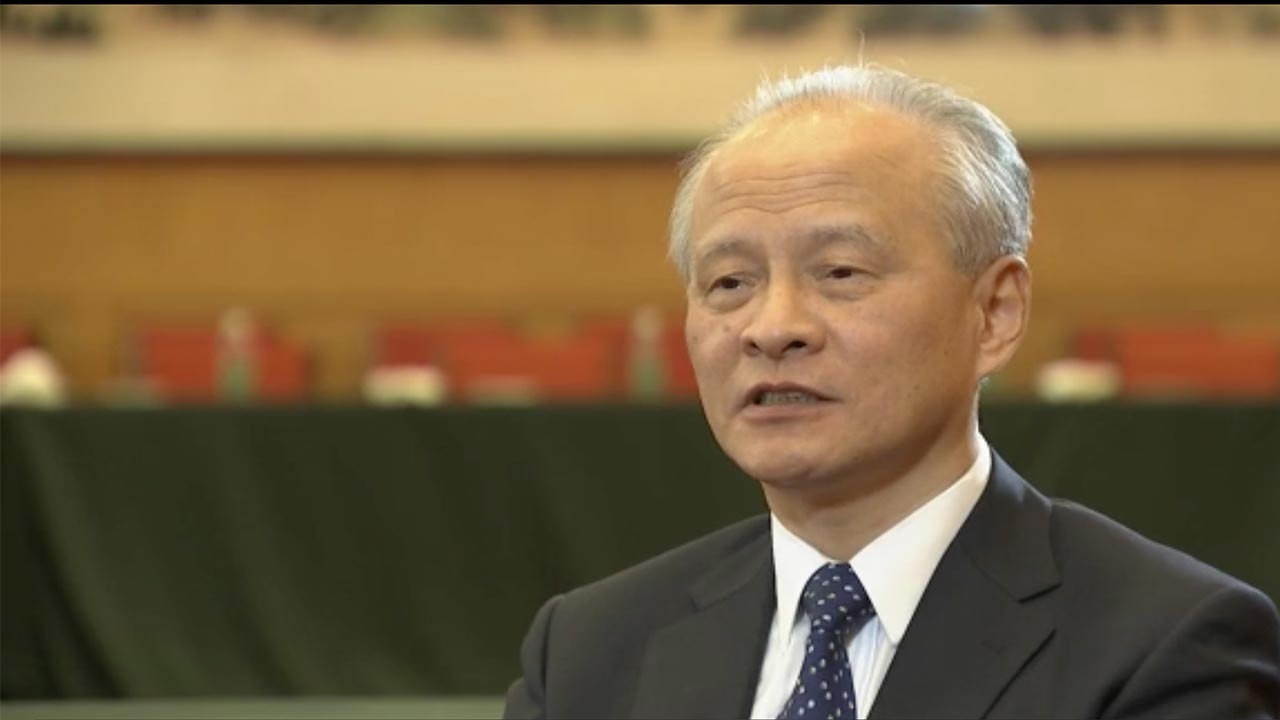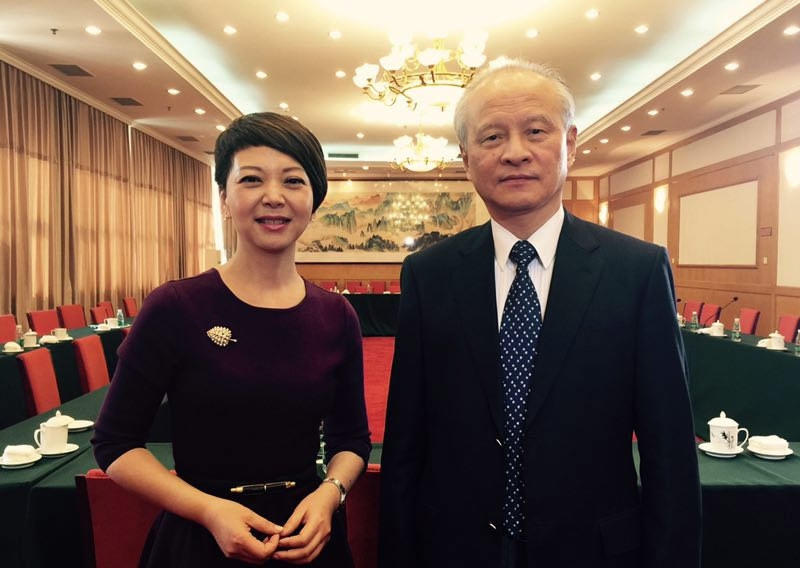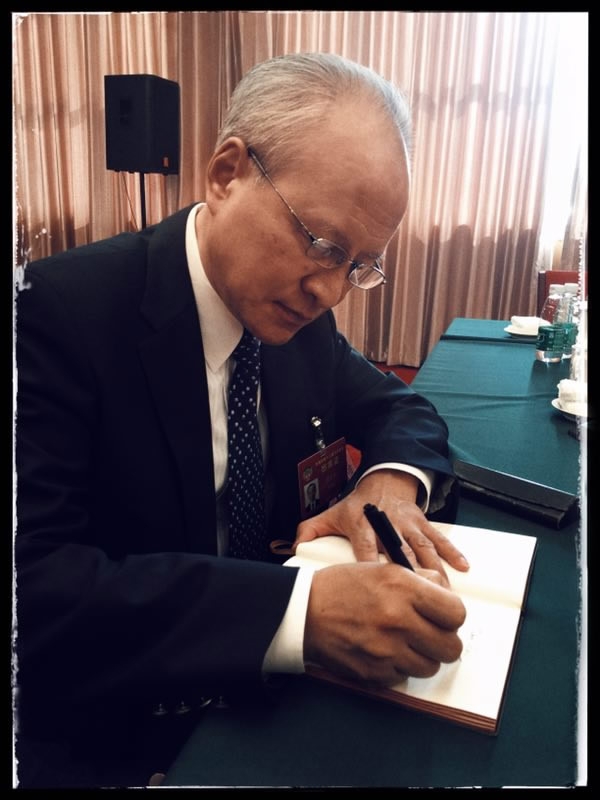
Politics
14:52, 05-Mar-2017
Exclusive interview: Chinese ambassador to US on China-US hotspot issues
Updated
10:57, 28-Jun-2018

By CGTN's Tian Wei, Shi Haizhen
US President Donald Trump said during his presidential campaign that everything could be put on the table as a bargaining chip. China's Ambassador to the United States Cui Tiankai helps illustrate some of the most important hotspot issues between China and the US. He spoke to CGTN senior reporter Tian Wei on the sidelines of the Chinese People's Political Consultative Conference (CPPCC), in our special interview series, "In My Opinion."

China's Ambassador to the United States Cui Tiankai with CGTN senior reporter Tian Wei. /CGTN Photo
China's Ambassador to the United States Cui Tiankai with CGTN senior reporter Tian Wei. /CGTN Photo
When asked whether China can afford to renegotiate everything with the United States, Cui said not everything could or should be renegotiated. For instance, the one-China principle, the Taiwan issue, representing China’s core interests, are not negotiable.
“We’ve made this absolutely clear to everybody. But some of the other issues, like trade, economic relations, mutual investment, some of the specific cases in trade relations, because the two countries are growing, things are changing, sometimes they need renegotiation,” said Cui.
The ambassador is not worried that China could pay a price. He thinks both sides have to aim at a win-win outcome. That means that each side will have to make some compromise, but each side will also gain something.

China's Ambassador to the United States Cui Tiankai. /CGTN Photo
China's Ambassador to the United States Cui Tiankai. /CGTN Photo
Trade is another hotspot issue. The trade policy paper submitted by the Trump administration to Congress for approval on March 1, suggested that the United States cannot follow the rulings of the World Trade Organization (WTO) if they are not in favor of the US.
Asked what that means for China, Cui said committing to WTO rules is a sovereign decision for every country. “But once they agree to join the WTO and to accept these rules, I think they have to honor them. Since our accession to the WTO, China has always followed the WTO rules. Sometimes we don’t have 100 percent agreement with them, but still we play by the rules. I hope America could do the same. But of course, as I said, it’s a sovereign decision for every country if they decide to withdraw. Although we don’t want to see that, they certainly have the right to do this.”
When it comes to the South China Sea issue, Cui thinks these are two very different factors. First, both China and United States are important countries in the Asia Pacific region, as both countries border the Pacific Ocean. “And in that respect, we do take into due regard the American legitimate interest in the region, and we want to seek very cooperative relationship with the US in the region. This is one issue. The South China Sea issue is totally different. We have to be clear about the nature of the issue. This is not a issue of strategic rivalry between China and the United States, this is territorial issue, and it should be handled as such,” said Cui.

SITEMAP
Copyright © 2018 CGTN. Beijing ICP prepared NO.16065310-3
Copyright © 2018 CGTN. Beijing ICP prepared NO.16065310-3